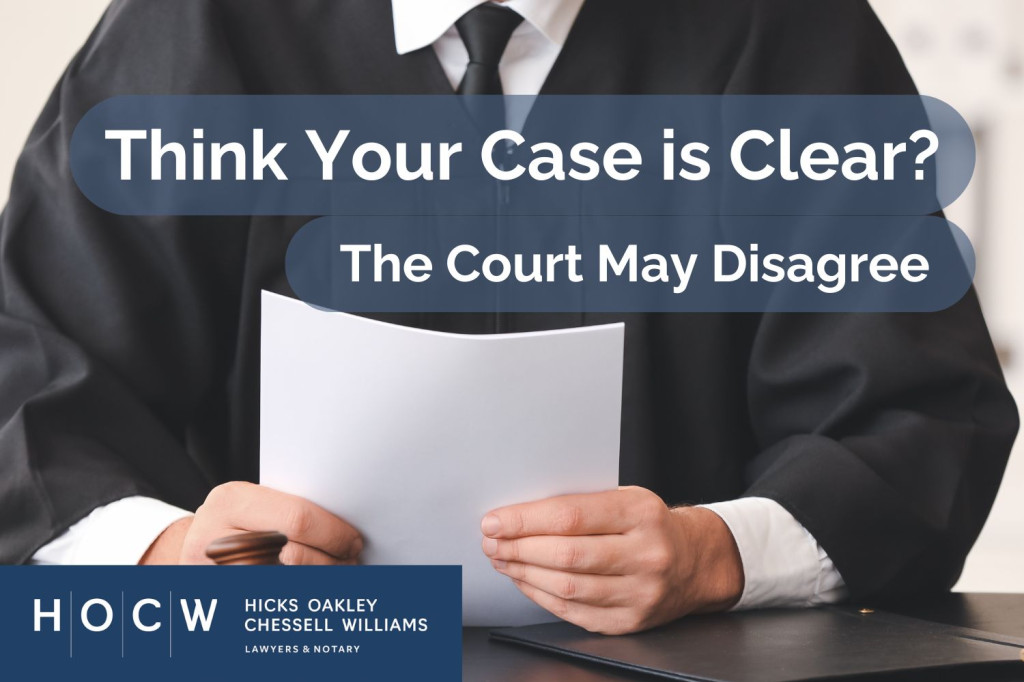Supreme Court Ruling on Summary Judgment: When Full Trials Are Required
What happens if you are sued for a claim that has no real basis? Or if you are a plaintiff and believe the defence is groundless? In such cases, a party may apply for Summary Judgment under the Civil Procedure Act 2010 (Vic), seeking to have the matter decided without a full trial.
Under the Act:
A plaintiff can apply for ‘summary judgment’ if the defence (or part of the defence) has no real prospect of success (section 61).
A defendant could apply for ‘summary judgment’ if the claim made by the plaintiff (or part of the claim) has no real prospect of success (section 62).
Even if the court finds no real prospect of success, it may still refuse summary judgment if it is not in the interests of justice, or a full hearing is necessary (section 64).
As a practical matter, heavily contested applications for summary judgment increase the likelihood that a court will require a full trial. The recent decision of the Supreme Court of Victoria (Bagshot Investments Pty Ltd and another v. Huntly Property Holdings Pty Ltd and another [2025] VSC 16, 30 January 2025), illustrates this principle.
The Case: Bagshot v Huntly
The plaintiffs claimed they were entitled to be registered as proprietors of land in Bagshot, near Bendigo, based on an agreement with the defendants. Huntly (the defendants) argued that:
Any alleged agreement to sell the land to the plaintiffs, was unenforceable as it was not in writing.
The agreement was void for uncertainty, or inconsistent with the terms of another agreement.
Huntly was the rightful owner and sought delivery of the Certificates of Title and removal of caveats lodged by the plaintiffs.
Both the plaintiffs and Huntly filed separate applications for summary judgment, supported by extensive affidavits and submissions to the Court.
The Court’s Decision
Associate Justice Irving dismissed both applications, finding that neither party had established an absence of real issues to be tried. Key reasons included:
Inconsistent Evidence – the evidence contained numerous inconsistences that required examination at a full trial.
Reliance on Inferences – The Plaintiffs’ application relied on inferences, which could not be properly assessed without cross-examination and a full evidentiary hearing.
Contractual Terms Unclear – the Court needed to determine the exact terms of the contract which required oral evidence tested by cross-examination.
Viable Defence to Cross-Claim - the plaintiffs’ defence to Huntly’s cross-claim had real prospects of success, and the inconsistencies in the evidence referred to above made summary judgment inappropriate.
As a result, the Court decided that both the plaintiffs’ claim, and Huntly’s counterclaim must proceed to a full trial.
Key Takeaway
This case highlights that even when a party believes an opposing claim or defence has no real prospect of success, a court may still require a full trial if factual disputes exist. Summary judgment is a powerful tool, but it is not granted lightly, particularly in heavily contested matters with complex evidence.
At Hicks Oakley Chessell Williams, our Commercial Litigation & Insolvency team, led by Matthew Hicks, Director & Principal Lawyer, has extensive experience in summary judgment applications, contract disputes, and insolvency matters. Whether you're seeking to resolve a dispute efficiently or need representation in a complex litigation matter, our team provides strategic, results-driven advice.
Contact us today to discuss your options and ensure your case is positioned for success.



